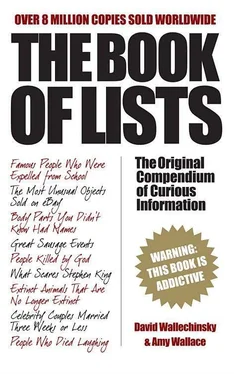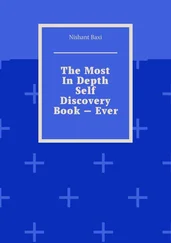DR ROBERT ATKINS (1930–2003) Age at death: 72
On April 17, 2003, the famous ‘low-carb diet doctor’, Dr Atkins, died after falling on an icy street and hitting his head. It was in 1972 that Atkins — who had a history of heart disease — published the bestselling Dr Atkins’ Diet Revolution , which advocated consuming meat, eggs and cheese while shunning all carbohydrates, including wheat bread, all rice and fruits. His books sold more than 15 million copies and became the subject of heated debate: other respected dieticians advise the opposite approach — fruit, fresh vegetables and a largely vegetarian diet. A group of doctors severely critical of Atkins’ plan maintain that his programme leads to weight gain and heart disease. Atkins supporters insist that his death was the result of hospitalisation, where, in a coma, he gained 60 lb in fluid retention. Upon entering the hospital, the 6-ft Atkins weighted 195 lb — overweight by the standards of the Center For Heart Disease. He died eight days later at the formidable weight of 265 lb. Defenders of the diet vigorously claim the cause was bloating. His books continue to sell.
J.I. RODALE (1898–1971) Age at death: 72
The head of a multimillion-dollar publishing business, Rodale promulgated his belief in ‘organic food’ (food free from chemicals and artificial additives) supplemented by natural vitamins through his popular magazines Organic Gardening and Prevention . He was at the height of his fame when he appeared on The Dick Cavett Show on June 9, 1971. After describing the dangers of milk, wheat and sugar, Rodale proceeded to say, ‘I’m so healthy that I expect to live on and on.’ Shortly after the conclusion of the interview, Rodale slumped in his chair, the victim of a fatal heart attack.
SEBASTIAN KNEIPP (1821–97) Age at death: 76
As a young seminary student, Kneipp cured himself of an attack of nervous prostration through hydrotherapy. When he became a priest, he continued his cold-water cures. Eventually he abandoned his priestly duties altogether to give advice to as many as 500 patients a day. The empress of Austria and Pope Leo XIII were among those who consulted him. Kneipp believed that the application of cold water — plus exercise, fresh air, sunshine, and walking barefoot over grass and through snow — could cure virtually any mental or physical disorder. An inflammation of his lungs, which had been weak since childhood, resulted in his death.
FRANZ MESMER (1734–1815) Age at death: 80
Mesmer believed that a person became ill when his ‘animal magnetism’ was out of balance. To correct this condition, the Viennese doctor made use of magnets and held séance-like therapeutic sessions for his patients. Hounded out of Vienna on charges of practising magic, Mesmer moved to Paris, where a royal commission (whose members included Benjamin Franklin and Antoine Lavoisier) concluded that Mesmer’s ‘cures’ were due solely to his patients’ imaginations. Mesmer was convinced that he would die in his eighty-first year, as a Gypsy woman had foretold. Her prediction came true two months before his eighty-first birthday, when he succumbed to an extremely painful bladder condition that had troubled him for years.
D.C. JARVIS (1881–1966) Age at death: 85
This country doctor became an overnight sensation in 1958 with the publication of Folk Medicine : A Vermont Doctor’s Guide to Good Health . Part of his appeal derived from the simplicity of his remedies. For example, he suggested that one could stay healthy through a daily dose of two teaspoons each of honey and apple cider vinegar in a glass of water. Jarvis had many supporters, in spite of a Harvard professor’s comment that ‘This claptrap is strictly for those gullible birds stung by the honey bee.’ Jarvis died in a nursing home in Vermont after suffering a cerebral haemorrhage.
BERNARD MACFADDEN (1868–1955) Age at death: 87
Billing himself as a kinestherapist, Macfadden ran a chain of health food restaurants and sanitariums that pushed his programme of exercise, fresh air, personal hygiene and wholesome diet. He also published the popular but controversial magazine Physical Culture , which featured photos of men and women posing nearly naked — considered obscene by some in the early twentieth century. Throughout his long life Macfadden was almost always in the news for one reason or another — his marriages, his attacks on the medical establishment, or his founding of a new religion, the Cosmotarian Fellowship. Macfadden celebrated his eighty-third birthday by parachuting 2,500 ft into the Hudson River. The master showman finally succumbed to a urinary tract blockage that he had tried unsuccessfully to combat through fasting.
SAMUEL HAHNEMANN (1755–1843) Age at death: 88
A German physician at crosscurrents with the medical beliefs of his day, Hahnemann developed the system of homeopathy. Its basic tenet is that a drug that produces symptoms of illness in a healthy person will cure a sick person who exhibits those symptoms, when that drug is administered in minute doses. Hahnemann died from an inflammation of the bronchial tubes, which had plagued him for 20 years. Although he had come to terms with death (‘My earthly shell is worn out,’ he stated), his wife was less accepting of the inevitable. She kept his embalmed corpse with her for nine days before giving it up for burial.
MARY BAKER EDDY (1821–1910) Age at death: 89
Eddy founded the Christian Science religion after experiencing what she believed to be Christ’s method of healing. At the time, she was suffering the effects of a serious fall on the ice. She taught that healing is accomplished not by drugs or medicines but through the affirmation of spiritual truth. Although Eddy enjoyed a remarkably active old age, when her health began to fail she was convinced that it was due to Malicious Animal Magnetism engendered by her enemies. The official verdict was that she died from ‘natural causes’ after a brief bout of pneumonia. The undertaker who examined the corpse stated: ‘I do not remember having found the body of a person of such advanced age in so good a physical condition.’
LINUS PAULING (1901–94) Age at death: 93
The only person to win two unshared Nobel Prizes (for Chemistry and Peace, not Medicine), Pauling in 1970 wrote a book arguing that large doses of vitamin C could cure the common cold. Over the years he expanded on his claims, declaring that vitamin C would extend a person’s life by decades and ward off cancer and heart disease. Pauling himself took 18,000 mg of vitamin C a day (the recommended daily allowance for adults is 60 mg). Pauling was diagnosed with prostate cancer in December of 1991. He died of complications at his ranch in Big Sur, California, two years later.
– F.B. & C.F.
We read so often in the newspapers about ‘untimely deaths’ that it makes one wonder if anyone ever died a ‘timely death’. Well, people have, and here are some examples.
DOMITIAN (AD51–96), Roman emperor
Early astrological predictions had warned that he would be murdered on the fifth hour of September 18, AD96. As the date approached, Domitian had many of his closest attendants executed to be on the safe side. Just before midnight marked the beginning of the critical day, he became so terrified that he jumped out of bed. A few hours later he asked the time and was told by his servants (who were conspiring against him) that it was the sixth hour. Convinced that the danger had passed, Domitian went off to take a bath. On the way he was informed that his niece’s steward, Stephanus, was waiting for him in the bedroom with important news. When the emperor arrived, Stephanus handed him a list of conspirators and then suddenly stabbed him in the groin. Domitian put up a good fight, but he was overcome when four more conspirators appeared. He died as predicted, on the fifth hour of September 18, AD96.
Читать дальше












